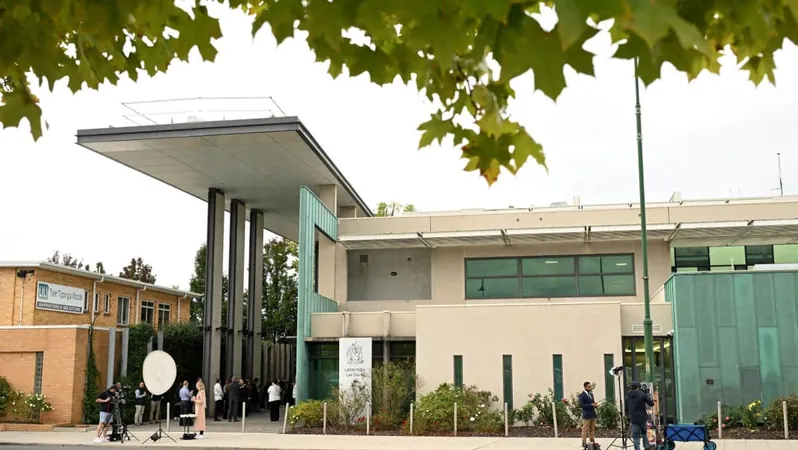
Colorectal Cancer: Is It the Silent Threat for Young Adults?
2025-04-17
Author: Wei
The Rise of Colorectal Cancer Among Youth
Is colorectal cancer becoming the next big health concern for Gen X, Millennials, and Gen Z? We spoke to Dr. Ronnie Mathew, the Medical Director at Colorectal Care Specialists, for insights on the alarming rise of this disease in younger demographics, not just in Singapore but globally.
A Shocking Shift
Traditionally seen as a disease affecting those over 50, colorectal cancer is now increasingly being diagnosed in individuals as young as their 20s. This worrying trend, known as Early-Onset Colorectal Cancer (EOCRC), is gaining traction worldwide. The American Cancer Society reports that EOCRC now makes up about 10 to 15 percent of all colorectal cancer cases, with rates rising sharply, including in Singapore.
What’s Driving This Surge?
The exact reasons for this spike remain unclear. Many affected individuals lack the typical risk factors—like family history or genetic predispositions—making this uptick particularly concerning. Common risk factors like poor diet, sedentary lifestyle, obesity, smoking, and excessive alcohol consumption may play a crucial role. Furthermore, changes in gut microbiota could also be influencing this trend.
Identifying Warning Signs
Unfortunately, colorectal cancer often presents no symptoms in its early stages. By the time symptoms do emerge—such as changes in bowel habits, blood in the stool, unexplained weight loss, abdominal discomfort, and fatigue—the cancer is often already advanced. Tragically, Dr. Mathew recently encountered a young adult whose condition escalated to advanced stage IV upon diagnosis.
The Challenge of Treatment
While younger patients typically enjoy better overall health, enabling them to endure aggressive treatments, they too often present with advanced stages of cancer due to delayed diagnoses. This adds complexity to recovery and may lead to poorer survival rates in comparison to older patients.
Reevaluating Screening Guidelines
The age at which individuals begin regular screenings like colonoscopies is traditionally set at 50. However, with this new data, many experts advocate starting screenings as early as 40 or even 45. Early detection is pivotal, as colorectal cancer is one of the few cancers that can frequently be prevented.
Lifestyle Changes for Prevention
To mitigate risks, Dr. Mathew recommends maintaining a balanced diet rich in fiber, reducing red and processed meat intake, and embracing an active lifestyle. Avoiding obesity, refraining from smoking, and limiting alcohol consumption are also essential. If there's a family history of colorectal cancer, early screening is crucial.
Take Action Now!
Make sure to pay attention to your health and seek medical advice if you notice any concerning symptoms. Being proactive can significantly improve outcomes in colorectal cancer.
Meet Dr. Ronnie Mathew
Dr. Ronnie Mathew is a Senior Consultant Surgeon with nearly three decades of experience in colorectal surgery. He strongly advocates for minimally invasive surgical methods.
Colorectal Care Specialists offers expert services at Mount Elizabeth Medical Centre. Don’t wait—prioritize your health!




 Brasil (PT)
Brasil (PT)
 Canada (EN)
Canada (EN)
 Chile (ES)
Chile (ES)
 Česko (CS)
Česko (CS)
 대한민국 (KO)
대한민국 (KO)
 España (ES)
España (ES)
 France (FR)
France (FR)
 Hong Kong (EN)
Hong Kong (EN)
 Italia (IT)
Italia (IT)
 日本 (JA)
日本 (JA)
 Magyarország (HU)
Magyarország (HU)
 Norge (NO)
Norge (NO)
 Polska (PL)
Polska (PL)
 Schweiz (DE)
Schweiz (DE)
 Singapore (EN)
Singapore (EN)
 Sverige (SV)
Sverige (SV)
 Suomi (FI)
Suomi (FI)
 Türkiye (TR)
Türkiye (TR)
 الإمارات العربية المتحدة (AR)
الإمارات العربية المتحدة (AR)